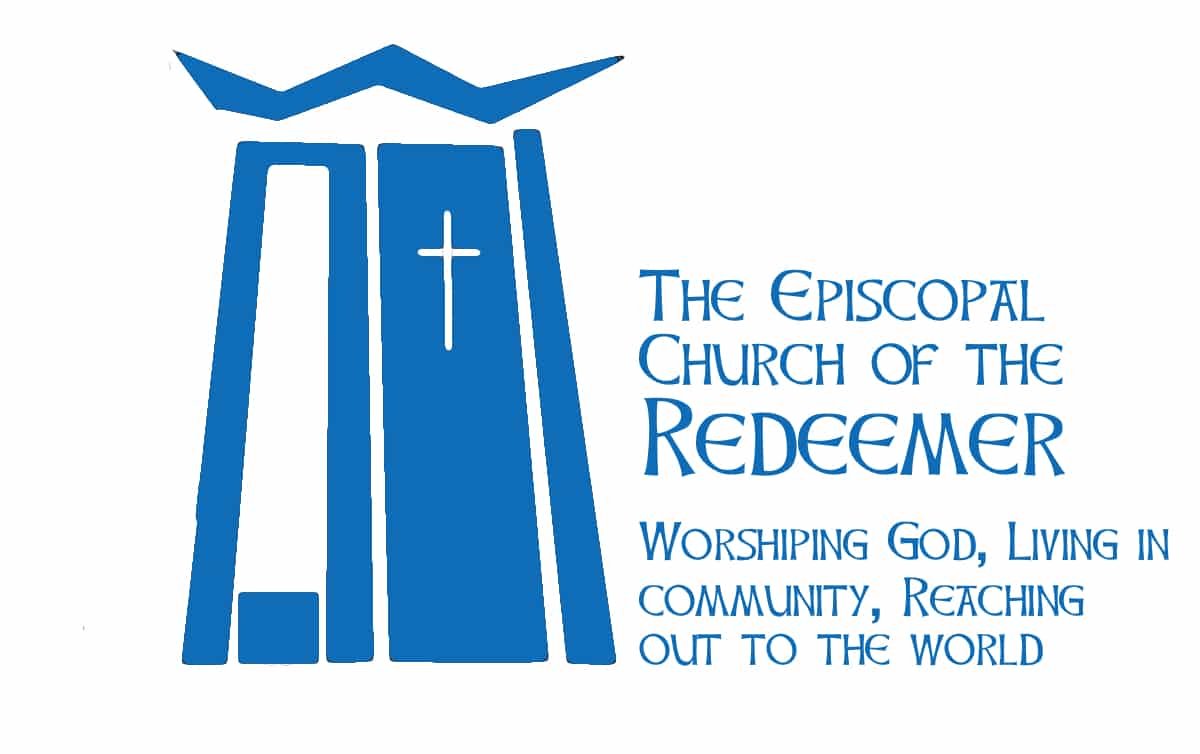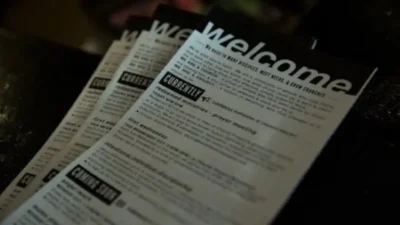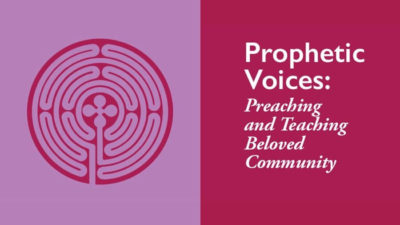[Episcopal News Service] The sermon’s duration was less than 15 minutes. Its theme – a call for unity grounded in faith at a time of political division – was hardly out of the norm for a post-inauguration service at Washington National Cathedral, which has hosted similar services 10 times before.
It was the sermon’s final four minutes that struck a chord. Washington Bishop Mariann Budde issued a final plea directly to President Donald Trump as he sat in the front row, a moment that would generate national headlines and intense reactions, both positive and negative.
Her calm plea to the president: “Have mercy.”
Later in the day January 21, 2025, Trump made clear his distaste for the sermon when asked about it by reporters, saying he “didn’t think it was a good service.” Then early January 22, he amplified his complaints with a social media post that demanded Budde and “her church” apologize.
Without using Budde’s name, the president labeled her “a so-called bishop” and a “Radical Left hard line Trump hater” whose sermon was “ungracious” and “nasty in tone.”
Budde, in her sermon, had asked Trump to show mercy to “the people in our country who are scared now,” and she specifically held up the fears felt by many LGTBQ+ people and immigrants at the start of Trump’s second term.

A day earlier, after his January 20 inauguration, Trump had issued a series of executive orders, including several intended to address what he declared was a national emergency on the U.S.-Mexico border. During the campaign Trump had promised to enact mass deportations, and in his social media post about Budde’s sermon, he added, without evidence, that a “large number of illegal migrants” had entered the United States and killed people as part of a “giant crime wave.”
Budde’s plea to Trump: ‘Have mercy upon the people in our country who are scared’
Who Bishop Budde was addressing
Episcopal News Service sought comment from Budde for this story, which will be updated upon receiving a response. The bishop, whose diocese includes the United States’ capital city and part of Maryland, discussed her sermon in an interview with CNN that aired Jan. 21, after Trump’s initial comments but before his demand for an apology.
Budde confirmed she was looking directly at Trump while speaking to him from the pulpit.
“I was also, frankly, as you do in every sermon, speaking to everyone who was listening, through that one-on-one conversation with the president, reminding us all that the people that are frightened in our country … are our fellow human beings and that they have been portrayed all throughout the political campaign in the harshest of lights,” Budde told CNN. “I wanted to counter, as gently as I could, with a reminder of their humanity and their place in our wider community.”
Response to the sermon
However gentle, her sermon set off a firestorm on social media and a flurry of emails to church officials. The ENS story posted to Facebook had generated more than 600 comments as of midday Jan. 22, many of them thanking Budde for upholding Christian values and others strongly criticizing her – some even going as far as calling for her removal.
ENS also received more than a dozen emails about the sermon, some supportive, many of them outraged. Some suggested Budde’s message to the president was better delivered in person rather than from the pulpit. Kathleen Kinsolving, who identified herself as the granddaughter of the Rt. Rev. Arthur B. Kinsolving, bishop of Arizona from 1945-1962, shared with ENS a letter she had addressed directly to Budde.
“It was extremely inappropriate for you to use the pulpit to lash out at President Trump during today’s service. This is completely unbecoming conduct, especially for a bishop!” Kinsolving wrote. “You should always treat every member of your congregation with the utmost respect, no matter who they are.”
Trump, though not a member of the Washington National Cathedral, had attended the cathedral’s Service of Prayer for the Nation with his family and members of his new administration, including Vice President JD Vance.

Bishop in good standing
An Episcopal Church spokesperson released a statement Jan. 22, saying that Budde has been a “bishop in good standing” since her consecration in 2011. “She is a valued and trusted pastor to her diocese and colleague to bishops throughout our church. We stand by Bishop Budde and her appeal for the Christian values of mercy and compassion.”
Speak directly to a person in a sermon
Some critics of Budde’s sermon argued it was inappropriate for her to preach directly to Trump – or to any individual member of a worshipping community. ENS posed this scenario to the Rev. Ruthanna Hooke, a professor of homiletics at Virginia Theological Seminary, who noted preachers commonly address individuals in other types of services, such as weddings, baptisms and ordinations.
A post-inauguration service isn’t just about the president in the same way that an ordination is about the ordinand, Hooke said, though she thought Budde “built the case carefully” to justify the direct plea to the president. Budde rooted the first part of her sermon solidly in Scripture, Hooke said, specifically the passage from the Gospel of Matthew about “a wise man who built his house on rock.”
“When people are going to preach a sermon that might be controversial in this context, basing it firmly on Scripture is the solid ground, to use that same metaphor,” Hooke said. The preacher’s message may not reach every member of a congregation immediately, but “sometimes a sermon is planting seeds that are going to grow and sprout much later.”
Support from other bishops
Some of Budde’s fellow bishops were among those who came to her defense and commended her sermon.
“I encourage you to listen to the whole sermon, which is a reflection on Godly unity, and what is means to be united across disagreement,” Arizona Bishop Jennifer Reddall said on Facebook while sharing video of Budde’s sermon. “It’s a vision of the Kingdom of God, deeply rooted in the Gospel of Jesus Christ.”
Los Angeles Bishop John Harvey Taylor went further in his Facebook post about the sermon, saying Budde had “held Trump accountable to his face for ten years of hate speech.”
Judging by the look on Trump’s face, “you could tell she got through to him,” said Taylor, who previously served as former President Richard Nixon’s chief of staff and executive director of the Richard Nixon Library & Birthplace Foundation. Taylor urged his followers to “resist colluding with the second-day story,” presumably referring to the outrage from Trump’s supporters.
Plans for the service announced in October 2024
Plans for the cathedral’s post-inauguration service were announced in October, before Trump defeated Vice President Kamala Harris in November to win the presidency for a second time. The service was not open to the public because of security concerns, though it was livestreamed and is available as a video on the cathedral’s YouTube channel.
Seat of the Presiding Bishop and Bishop of Washington
Washington National Cathedral is the seat of The Episcopal Church’s presiding bishop and of the bishop of the Episcopal Diocese of Washington. Budde was joined at the altar by National Cathedral Dean Randy Hollerith, as well as the Rt. Rev. Ann Ritonia, The Episcopal Church’s bishop suffragan for armed forces and federal ministries. The service also featured leaders from a diverse group of faith denominations, including Protestant, Mennonite, Mormon, Jewish, Muslim, Hindu, Sikh and Buddhist leaders.
Budde, in her sermon, did not identify or criticize any specific policy promoted by Trump. Rather, she invoked familiar Christian themes of compassion, respect for human dignity and welcoming the stranger.
“I ask you to have mercy, Mr. President, on those in our communities whose children fear that their parents will be taken away, and that you help those who are fleeing war zones and persecution in their own lands to find compassion and welcome here,” Budde said. “Our God teaches us that we are to be merciful to the stranger, for we were all once strangers in this land.”
Her reasons for addressing President Trump directly
Later, in her interview with CNN, she explained why she thought it important to address Trump directly at the end of her sermon.
“I felt that he has this moment now where he feels charged and empowered to do what he feels called to do, and I wanted to say there is room for mercy,” Budde said. “There’s room for broader compassion. We don’t need to portray with a broad cloth in the harshest of terms some of the most vulnerable people in our society, who are in fact our neighbors, our friends, our friends’ children.”
Those neighbors “are not abstract people for me,” she added. “These are actual people that I know, so I wanted to speak on their behalf. I wanted to present a vison of what unity can look like in this country that is transcending of differences and viewpoints and acknowledging our common humanity.”
When asked about Trump’s initial criticisms of the service, Budde said she never assumes her sermons will create a response. “I keep my expectations low whenever I preach,” she said.
She also wasn’t bothered by Trump’s comment to reporters that the cathedral “can do much better.”
“Some of the other comments I’ve received haven’t been as kind,” she said.
In a separate interview with The New York Times, Budde declined to comment further on Trump’s reaction. Later January 22, though, she told NPR’s “All Things Considered” that she objected to Trump’s personal attacks on her and said there was nothing about her sermon she thought required an apology.
—David Paulsen is a senior reporter and editor for Episcopal News Service based in Wisconsin. He can be reached at dpaulsen@episcopalchurch.org.
About Episcopal News Service
Episcopal News Service (ENS) offers in-depth reporting of local, regional, national and international news for Episcopalians and others interested in the church’s mission and ministry. Episcopal News Service is the official news source of the Episcopal Church.

Church of the Redeemer
Church of the Redeemer: Worshiping God, living in community, and reaching out to the world around us. We are an Episcopal Church serving north King County and south Snohomish County, Washington. As you travel your road, go with friends walking the way of Jesus at Redeemer.
Church of the Redeemer is at 6210 Northeast 181st Street in Kenmore, Washington. The campus is a short distance north of Bothell Way, near the Burke-Gilman Trail. The entrance looks like a gravel driveway. The campus is larger on the inside than it is on the outside. And we managed to hide a large building on the side of a hill that is not easily seen from the street.
The Episcopal Church welcomes you.






